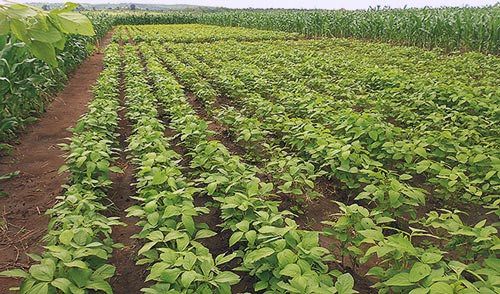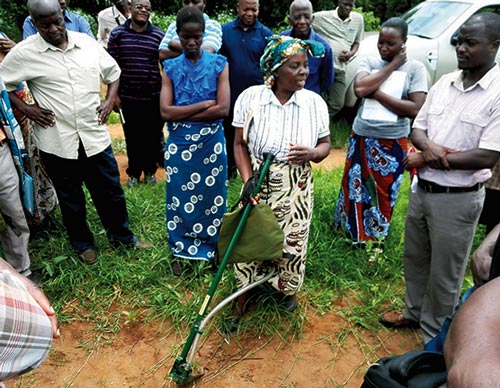Southern Africa smallholder farmers can attain food security and more income through sustainable intensification of maize-based farming systems. This was revealed during recent field learning tours in Malawi and Mozambique last month. On show were farmer-tested improved maize–legume technologies being disseminated by CIMMYT’s Sustainable Intensification of Maize-Legume Cropping Systems for Food Security in Eastern and Southern Africa (SIMLESA) project.

Smallholder farmers interacted with non-governmental organizations and private-sector partners who have shown a great interest in the SIMLESA outscaling approach using lead farmers and learning sites. Some of the sites promote smallholder agriculture development by linking farmers with buyers and agrodealers, and by providing access to credit and technical training.
Conservation agriculture (CA) exhibited mixed fortunes and presented more opportunities for learning and information sharing. Due to the excessive rains experienced in January, maize on the conventional ridge and furrow farming systems was generally greener and taller than on the CA plots, although the positive rotation effects in CA were clearly evident from the healthy maize crop following soybeans. Also, some maize varieties under CA were more susceptible to diseases such as leaf rust and suffered more from pests such as white grubs which attacked maize roots.

Main points from the learning tours included:
- Linking the smallholder farmer to input and output markets is an integral part of SIMLESA Phase II’s smallholder commercialization thrust.
- The participation of private-sector companies in SIMLESA demonstrations is a vital exit strategy to ensure sustainability and continued engagement with smallholders.
- CA technologies performed rather poorly in periods of excessive rainfall, and particularly so for nitrogen-starved crops.
- Using different maize varieties could help SIMLESA recommend the best CA-ready maize cultivars capable of tolerating diseases and pests in CA systems.
Read more on SIMLESA’s field tours here.
 Innovations
Innovations